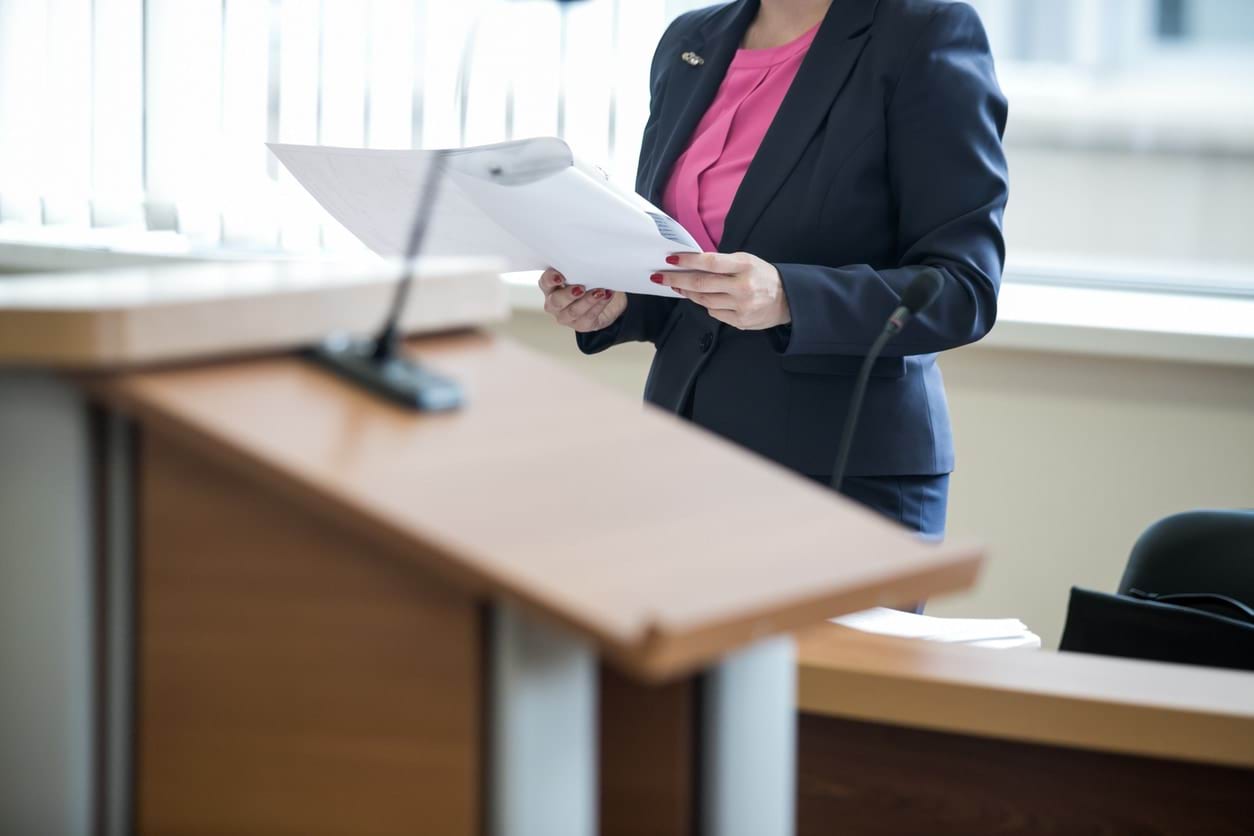- Published:
- Wednesday 1 February 2023 at 11:01 am

The State of Victoria (State) is routinely a party to litigation involving actions by employees in respect of which the State may be found to be vicariously liable. When these matters run to trial those employees may be key witnesses for the State.[1]
In June 2022, the Victorian Court of Appeal delivered its decision in State of Victoria v Villan [2022] VSCA 106 (Villan). It provides the State and its legal practitioners with practical guidance regarding their obligations when calling witnesses in civil proceedings who may be subject to future criminal prosecution arising out of related factual circumstances. It is also relevant for all employers of persons against whom criminal allegations are made either before, or during, civil proceedings.
What are the facts of the case?
In November 2019, Mr Villan brought a claim against the State in negligence alleging that he was sexually assaulted by a State school's principal (identified by the pseudonym EFG) while he was a student.[2] Mr Villan alleged the State was vicariously liable for the acts allegedly perpetrated by EFG. EFG was not a party to the proceeding.[3] The State denied the allegations[4] and proposed to call EFG as a witness in the trial by jury.
Prior to trial, the State's solicitors discussed with EFG the nature of the proceedings and the allegations made against him. In those communications, EFG was informed by the State's solicitors that, amongst other things, they wished to take a detailed statement from him but that he was under no obligation to meet with them and that he should seek independent legal advice.
Why was the jury discharged?
During the April 2021 trial, the jury heard that there had not been a criminal case against EFG, that the plaintiff had not yet made a complaint to police about the conduct of EFG but that, in light of legal advice, had decided that he would now do so.[5]
The State then successfully applied for a discharge of the jury without verdict on the basis that it was necessary for EFG to obtain independent legal advice about the privilege in respect of self-incrimination[6] and the potential consequences of him giving evidence in the trial.[7]
Upon receipt of the legal advice, EFG informed the Court that he was unwilling to give evidence and would oppose any application that he be required to do so.[8]
Why were proceedings stayed?
Keogh J determined that it was not in the interests of justice to require EFG to give evidence given the likelihood of criminal investigations.[9] He stayed the proceeding until the determination of any criminal investigation/proceedings against EFG arising out of the plaintiff's complaint.[10] In relation to costs, his Honour accepted the plaintiff's submission that it was inevitable that EFG was going to require independent legal advice and the State could have done more regarding the need for the witness to obtain advice, which ultimately led to the indefinite stay of the proceeding.[11] The State was ordered to pay the plaintiff's costs.[12]
What was the basis of the State's appeal?
The State sought leave to appeal before the Court of Appeal regarding the interlocutory costs order.[13] Broadly, it argued that:
the State's solicitors were not at fault in relation to the matters that led to the stay of the proceedings because they were not required to do more than recommend to EFG that he seek legal advice.[14] In particular, they were not required to advise him of the effect of giving evidence in the proceeding, namely that he was at risk of criminal prosecution, and the impact of giving evidence might have on that prosecution;[15] and
the circumstances leading to the indefinite stay of the trial resulted from the conduct of the plaintiff and his solicitors. In particular, it was the plaintiff's evidence on day four that he now wanted to report the abuse to police, together with the fact that his solicitors had been aware of that intention for some time, and yet continued the proceeding, that led to the indefinite stay.[16]
Why did the Court of Appeal dismiss the State's appeal regarding the costs order made against the State?
The Court considered the State's evidence regarding what had occurred leading up to the stay of the trial, including the nature of the contact between the State's solicitors and EFG. The Court accepted that the State was not aware of EFG's intention to go to police prior to him giving evidence. It held that the stay of the civil proceeding was not 'necessitated' by such evidence because, even if EFG had not given that evidence, the same events would likely still have occurred.[17]
Further, the Court of Appeal held that:
the State could have acted differently, by drawing to Mr Villan’s and the Court’s attention the fact that EFG had not received independent legal advice, and the potential s 128 issue, at least prior to the empanelment of the jury. That was information within the State’s knowledge, and not within Mr Villan’s knowledge. Had the State shared that knowledge, it is likely that four days of evidence, involving the jury’s time and the parties’ costs, would not have occurred.[18]
What are the lessons for the State and its legal practitioners?
- Recommend that the witness seek independent legal advice, but also provide the witness with an understanding of why they should do so, including that giving evidence could result in criminal charges and consequences in a future criminal prosecution (this does not constitute legal advice).[19]
- Consider whether it is 'inevitable' or highly likely that the witness will need to seek legal advice before giving evidence, because of the likelihood of future criminal proceedings.[20]
- Draw the Court and plaintiff's attention to the fact that a witness has not received independent legal advice, and the potential section 128 issue, at the earliest stage to avoid jury time and legal costs.[21]
- Consider the Law Institute of Victoria's 'Interviewing and Conferring with Witnesses Guidelines'.[22] The Court of Appeal observed that while the State's solicitors adhered to those guidelines, they were unfortunately, at that time, silent on how a solicitor should deal with a witness in a civil proceeding who might be subject to future criminal proceedings.[23] In doing so, the Court considered it 'to an extent, understandable' that the State's solicitor's omitted to give EFG additional information as to why he should seek independent legal advice. The LIV have recently updated its guidance to practitioners, as suggested by the Court.
- Make inquiries with the plaintiff's solicitors as to whether the plaintiff intends to make a report to police.[24]
Authors: Linsey Walker (Principal Solicitor) and Duong Nguyen (Solicitor)
Contact our team
Please get in touch with our team if you need assistance.
Sara Dennis
Assistant Victorian Government Solicitor
Jess Swanwick
Special Counsel
[1] See VGSO Bulletin "Tortious liability of the State of Victoria": https://www.vgso.vic.gov.au/tortious-liability-state-victoria.
[2] Villan,[2].
[3] Ibid.
[4] Ibid [3], [11].
[5] Ibid [19]-22]
[6] Pursuant to s 128 of the Evidence Act 2008 (Vic).
[7] Villan, [5].
[8] Ibid [26].
[9] See generally Villan v State of Victoria [2021] VSC 354 ('Trial Decision').
[10] Villan, [6].
[11] Ibid [27].
[12] Ibid [7].
[13] Ibid [7].
[14] Ibid [35]-[39].
[15] Ibid.
[16] Ibid.
[17] Ibid [79]-[82].
[18] Ibid [86] (Kennedy and Walker JJA).
[19] Ibid [62], [64], [67].
[20] Ibid [84]-[85].
[21] Ibid [86].
[22] Law Institute of Victoria, 'Interviewing and Conferring with Witnesses Guidelines' (10 February 2017).
[23] Villan, [70].
[24] Ibid [88].
Updated

